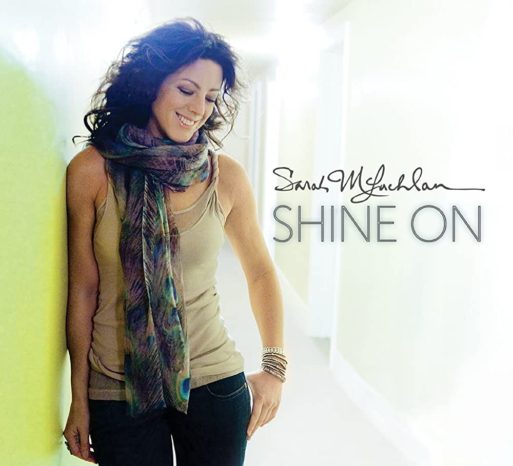
One of the most difficult transitions we experience in life is the death of a parent. Not only is it a significant loss marked by deep sadness and grief, it also, almost inevitably, leaves us feeling vulnerable, forsaken and alone. Even when we are well into our 40s, 50s or even 60s when our parents die, we often feel like lost, frightened children when they are gone.
Sarah McLachlan’s latest album, “Shine On,” was written after the death of her father in December 2010, nearly 10 years after her mother died from cancer in 2001. Dedicated to her dad’s memory, the album is filled with mournful songs about loss and grief and the void we feel when someone on whom we have depended for so much of our lives dies. With her characteristic mezzo-soprano vocals and evocative lyrics, McLachlan touches our hearts again and again with songs such as “Broken Heart” and “Surrender and Certainty,” in which she sings, “You were the star by which I light my way, so how do I find my way now?”
But it is “Song For My Father,” a simple ballad in which the singer-songwriter departs from her typical piano accompaniment and strums an acoustic guitar, that speaks most eloquently to the depth of her feelings of vulnerability and loss. She sings,
‘Cause I’ve been wrestling with my demons
They’re telling me I have no choice.
How I wish that I could lean upon you now
Amidst the chaos and the noise…”
“Oh I hope that you can hear me
Through the ravages of time
You have carried me though more than you could know
I still feel your hand in mine”
And even those whose parents are still alive can empathize with that feeling of being lost and alone in a too-big and often scary world. As McLachlan says in an interview with Jian Ghomeshi, the former host of Studio Q, “You rarely experience unconditional love anymore. And I absolutely felt that from him.”
Yet, as we listen to McLachlan speak, we do not get the sense that — five years after her father’s death– she is still grieving for him. Her sadness is palpable, but it also seems that losing her father helped her to develop a deeper understanding of — and a deeper gratitude for — the ways in which he shaped her life. “It was kind of an anchor, in a way,” she says, “And it was profound. It was beautiful.”
For those of us who have had the good fortune to experience unconditional love, whether it was from a parent, a sibling, a spouse or a friend, that, I believe, is the most important lesson we can learn from this song — the truth that the legacy of that love lives on within us, in the person it helped us to become.

 “Song for My Father” by Sarah McLachlan
“Song for My Father” by Sarah McLachlan


 How Dare You Die Now!
How Dare You Die Now!
 Debating Medical Aid in Dying
Debating Medical Aid in Dying
 “Help Me, Helen”
“Help Me, Helen”














